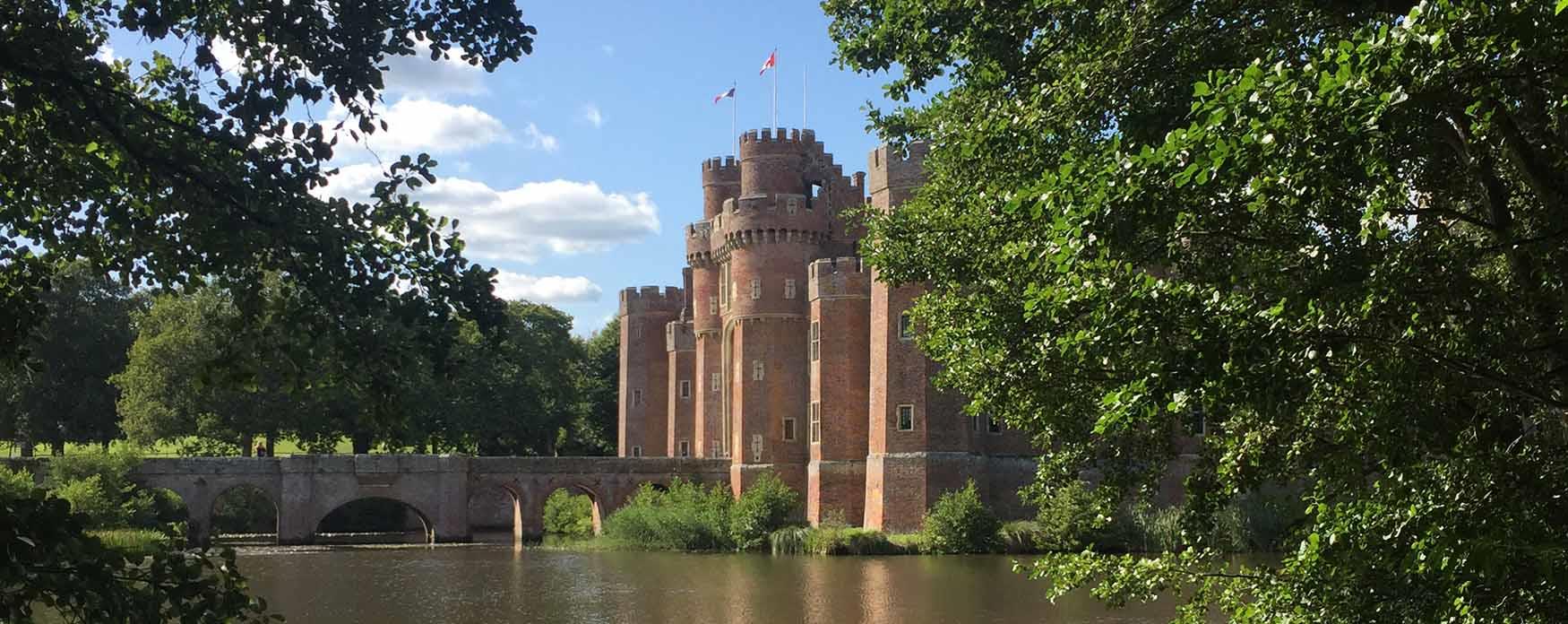My Planner
To build your own Itinerary, click  to add an item to your Itinerary basket.
to add an item to your Itinerary basket.
Already saved an Itinerary?

- Accommodation
- Things to Do
- What's On
- Food & Drink
- Shopping
Inspiration
Number of results: 35
, currently showing 1 to 20.
Address
High Street, Pevensey, East Sussex, BN24 5LEAddress
High Street, Pevensey, East Sussex, BN24 5LEFounded in the 4th century as one of the last of the Roman 'Saxon Shore' forts, Pevensey Castle was also the landing place of William the Conqueror's army in 1066.
Address
Hailsham, East Sussex, BN27 1RNHerstmonceux is renowned for its magnificent moated castle, set in beautiful parkland and superb Elizabethan gardens.
Address
Upper Dicker, Nr Hailsham, East Sussex, BN27 3QSTelephone
01323 844224Address
Upper Dicker, Nr Hailsham, East Sussex, BN27 3QSDiscover 800 years of history at Michelham Priory House and Gardens, set on a picturesque moated island. Explore interactive historic displays and hands-on children's activities. Stroll through seven acres of beautiful grounds featuring the…
Address
Kind Edwards Parade,, Eastbourne, East Sussex, BN21 4EETelephone
01323 415 415Address
Kind Edwards Parade,, Eastbourne, East Sussex, BN21 4EEThere were 74 Martello Towers built on the south coast between Folkestone and Seaford. Originally the tower immediately to the east of the Eastbourne Redoubt Fortress was numbered 1.
Address
Firle, Lewes, East Sussex, BN8 6LPOriginally Tudor, Firle Place is the home of the Gage family and has been for over 500 years.
Address
Wilmington, East Sussex, BN26 5SWThe Long Man of Wilmington towers above the village of Wilmington. This faceless outline of a man carved into the chalk, stands 235ft high.
Address
7 Motcombe Lane, Eastbourne, East Sussex, BN21 1PSTelephone
01323 415415Address
7 Motcombe Lane, Eastbourne, East Sussex, BN21 1PSThe location of an iron silhouette of Tommy Cooper, dedicated to the brilliant magician and comedian. Located at his former holiday home at 7 Motcombe Lane.
Address
Hodeslea, 10 Staveley Road, Eastbourne, East Sussex, BN20 7JXTelephone
01323 415415Address
Hodeslea, 10 Staveley Road, Eastbourne, East Sussex, BN20 7JXThe location of the historic blue plaque dedicated to the life and work of local Biologist, Professor Thomas Huxley.
Address
Eastbourne College, Old Wish Road, Eastbourne, East Sussex, BN21 4JYTelephone
01323 415415Address
Eastbourne College, Old Wish Road, Eastbourne, East Sussex, BN21 4JYLocation of Blue Plaque dedicated to the life and work of Proffesor Frederick Soddy, physicist and radiochemist.
Address
St Cyprian's School, 65 Summerdown Road, Eastbourne, East Sussex, BN20 8DQTelephone
01323 415415Address
St Cyprian's School, 65 Summerdown Road, Eastbourne, East Sussex, BN20 8DQ65 Summerdown Road is the location of a Blue Plaque dedicated to the famous students who studied there during their childhood.
Address
South Street, Eastbourne, BN21 4UTTelephone
01323 729702Address
South Street, Eastbourne, BN21 4UTAddress
Letheren Place, Eastbourne, East Sussex, BN21 1HLTelephone
01323 415415Address
Letheren Place, Eastbourne, East Sussex, BN21 1HLLocation of Blue Plaque dedicated to former soldiers, inmates, patients and staff of St Marys hospital and barracks.
Address
14 Milnthorpe Road, Eastbourne, East Sussex, BN20 7NRTelephone
01323 415415Address
14 Milnthorpe Road, Eastbourne, East Sussex, BN20 7NRThe location of the Blue Plaque dedicated to the Antarctic Explorer Sir Ernest Shackleton.
Address
52 Southover High Street, Lewes, East Sussex, BN7 1JATelephone
01273 474610Address
52 Southover High Street, Lewes, East Sussex, BN7 1JAAnne of Cleves House formed part of her divorce settlement from Henry VIII in 1541, although she never actually lived there. The 16th century timber - framed Wealden
hall - house contains wide - ranging collections of Sussex interest.Address
North Lane, West Hoathly, Nr East Grinstead, RH19 4PPTelephone
01342 810479Address
North Lane, West Hoathly, Nr East Grinstead, RH19 4PPStanding in the beautiful surroundings of a traditional cottage garden on the edge of Ashdown Forest, the Priest House is an early 15th century timber-framed hall-house built as an estate office for the Priory of St. Pancras in Lewes.
Address
Barbican House, 169 High Street, Lewes, East Sussex, BN7 1YETelephone
01273 486290Address
Barbican House, 169 High Street, Lewes, East Sussex, BN7 1YE"You can see Lewes lying like a box of toys under a great amphitheatre of chalky hills." So wrote William Morris, one of the many to comment on the idyllic setting of this historic town.
Address
The Tye, Alfriston, Nr Polegate, East Sussex, BN26 5TLTelephone
01323 871961Address
The Tye, Alfriston, Nr Polegate, East Sussex, BN26 5TLRare 14th century Wealden 'hall house' was the first building to be acquired by the National Trust in 1896. Delightful cottage garden in idyllic setting by Cuckmere River.
Address
Castle Hill Road, West Hill, Hastings, East Sussex, TN34 3ARTelephone
01424 444412Address
Castle Hill Road, West Hill, Hastings, East Sussex, TN34 3ARDiscover the fascinating history of the battle of 1066. Includes 20 minute audio-visual programme covering the battle and the history of Hastings through the centuries.
Address
Sloe Lane, Alfriston, POLEGATE, East Sussex, BN26 5UPTelephone
01323 870376Address
Sloe Lane, Alfriston, POLEGATE, East Sussex, BN26 5UPSt Andrews is often called the 'Cathedral of the Downs'. This cruciform church has a single spire. Next to the church is a beautiful 14th Century Old Clergy House, now owned by the National Trust.
Address
Muddles Green, Chiddingly, Lewes, East Sussex, BN8 6HWTelephone
01825 872856Address
Muddles Green, Chiddingly, Lewes, East Sussex, BN8 6HWFormer residence of the photographer, Lee Miller and Surrealist Roland Penrose. Now base of the Lee Miller Archives and The Penrose Collection. Open to the public on Sundays between April and October each year.















